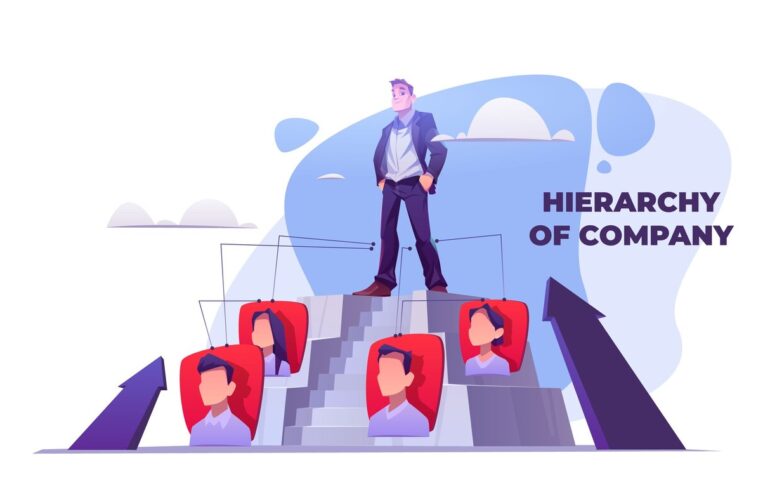Building a Competitive Culture for Small and Medium-Sized Enterprises through Human Resource Management
In today’s competitive business landscape, establishing a strong Competitive Culture is essential for the success of small and medium-sized enterprises (SMEs). Effective human resource management plays a pivotal role in shaping this culture, driving employee engagement, productivity, and ultimately, business growth.
Introduction
Creating a Competitive Culture within SMEs requires a strategic approach to human resource management. By fostering an environment where employees feel valued, motivated, and aligned with the company’s goals, businesses can gain a competitive edge in their respective industries. This article explores the key steps and strategies involved in building a robust organizational culture through effective HR management.
Understanding the Importance of Organizational Culture
Organizational culture encompasses the shared values, beliefs, and behaviors that define the identity of a company. It influences how employees interact with one another, make decisions, and perceive their roles within the organization. A strong culture fosters unity, collaboration, and innovation, driving organizational success.
Defining the Vision and Values
At the heart of building a competitive culture lies a clear vision and set of values that guide the actions and decisions of every employee. SMEs should articulate their vision statement and core values, ensuring alignment with their business objectives and desired culture.
Empowering Leadership and Employee Engagement
Effective leadership is instrumental in shaping organizational culture. Leaders should inspire trust, transparency, and accountability, empowering employees to contribute their ideas and talents towards common goals. By fostering a culture of open communication and collaboration, SMEs can enhance employee engagement and satisfaction.
Promoting Diversity and Inclusion
Diversity and inclusion are integral to building a competitive culture that values perspectives from all backgrounds. SMEs should strive to create a workplace where employees feel respected, valued, and empowered to bring their authentic selves to work. Embracing diversity fosters creativity, innovation, and a broader range of perspectives within the organization.
Nurturing Talent Development and Learning
Investing in employee development and continuous learning is essential for cultivating a culture of growth and excellence. SMEs should provide opportunities for skill-building, training, and career advancement, enabling employees to reach their full potential. By fostering a culture of learning and development, businesses can attract top talent and retain valuable employees.
Fostering Collaboration and Teamwork
Collaboration lies at the heart of a competitive organizational culture. SMEs should encourage teamwork, knowledge sharing, and cross-functional collaboration to drive innovation and problem-solving. By breaking down silos and fostering a sense of unity among employees, businesses can achieve greater agility and adaptability in a rapidly changing market.
Embracing Change and Adaptability
In today’s dynamic business environment, adaptability is key to survival and growth. SMEs should embrace change as an opportunity for growth and innovation, encouraging a culture of experimentation and risk-taking. By fostering agility and resilience, businesses can stay ahead of the competition and seize new opportunities as they arise.
Ensuring Transparency and Communication
Transparent communication is essential for building trust and alignment within an organization. SMEs should strive to keep employees informed about company goals, initiatives, and performance metrics. By fostering an environment of open communication and feedback, businesses can strengthen employee morale and engagement.
Celebrating Success and Recognizing Achievements
Acknowledging and celebrating success is vital for reinforcing positive behaviors and fostering a culture of appreciation. SMEs should recognize employee contributions, milestones, and achievements, whether big or small. By fostering a culture of recognition and appreciation, businesses can boost morale, motivation, and loyalty among employees.
Balancing Work-Life Integration
Promoting work-life balance is essential for employee well-being and productivity. SMEs should encourage flexible work arrangements, promote wellness initiatives, and support employees in achieving harmony between their professional and personal lives. By prioritizing employee well-being, businesses can enhance retention rates and attract top talent.
Emphasizing Ethical Leadership and Corporate Responsibility
Ethical leadership and corporate responsibility are foundational to building a sustainable and socially responsible organizational culture. SMEs should demonstrate integrity, accountability, and a commitment to ethical business practices. By upholding ethical standards and contributing positively to society, businesses can earn the trust and loyalty of customers, employees, and stakeholders.
FAQs
How can SMEs foster employee engagement and loyalty?
Fostering employee engagement and loyalty in SMEs begins with creating a supportive and inclusive work environment. Encouraging open communication, providing opportunities for career growth, and recognizing employees’ contributions are key strategies. Additionally, offering competitive compensation and benefits packages can help enhance employee satisfaction and loyalty.
What role does leadership play in shaping organizational culture?
Leadership plays a crucial role in shaping organizational culture by setting the tone, values, and expectations within the company. Effective leaders inspire trust, promote transparency, and lead by example, fostering a culture of accountability, innovation, and collaboration. They also play a key role in aligning employees with the company’s vision and goals.
How can SMEs promote diversity and inclusion in the workplace?
Promoting diversity and inclusion in the workplace involves creating policies and practices that value and respect employees from diverse backgrounds. SMEs can implement diversity training programs, establish diversity councils or employee resource groups, and actively recruit candidates from underrepresented groups. Encouraging open dialogue and addressing unconscious bias are also essential steps in fostering an inclusive culture.
What strategies can SMEs use to encourage collaboration and teamwork?
Encouraging collaboration and teamwork requires creating opportunities for employees to work together towards common goals. SMEs can organize team-building activities, implement collaborative tools and technologies, and foster a culture of open communication and knowledge sharing. Providing cross-functional training and recognizing team achievements can also motivate employees to collaborate effectively.
How important is employee recognition in fostering a positive culture?
Employee recognition is vital for fostering a positive culture as it reinforces desired behaviors and values within the organization. Recognizing employees’ contributions, achievements, and milestones helps boost morale, motivation, and engagement. Whether through verbal praise, awards, or incentives, acknowledging employees’ efforts strengthens their connection to the company and encourages continued excellence.
What are some effective ways to promote work-life balance for employees?
Promoting work-life balance involves offering flexible work arrangements, such as remote work options or flexible hours, to accommodate employees’ personal needs and commitments. SMEs can also provide wellness programs, mental health resources, and paid time off to support employees’ overall well-being. Encouraging boundaries between work and personal life and leading by example can help create a culture that values work-life balance.
Conclusion
In conclusion, building a competitive culture for small and medium-sized enterprises through effective human resource management is essential for long-term success. By focusing on vision, values, leadership, diversity, talent development, collaboration, adaptability, communication, recognition, work-life balance, and ethics, SMEs can create a thriving organizational culture that drives innovation, engagement, and growth.




